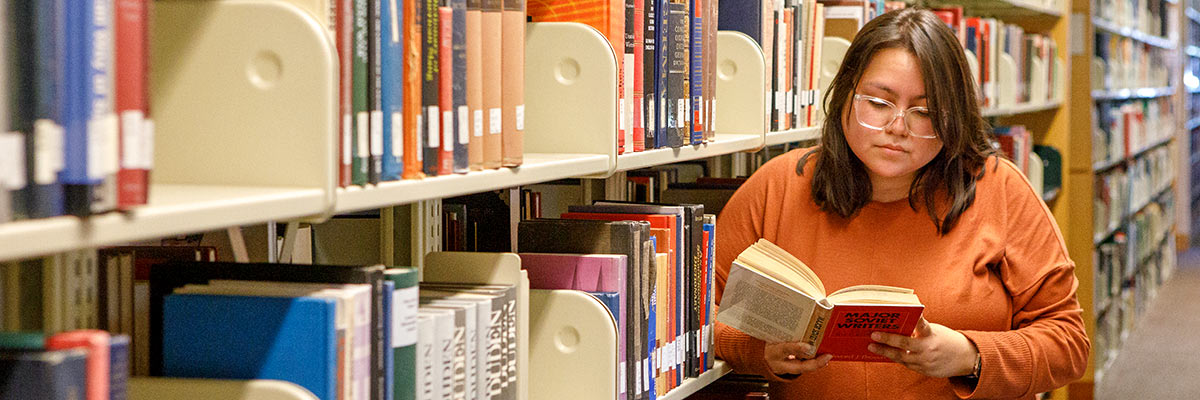- be_ixf; php_sdk; php_sdk_1.4.18
- 9 ms
- iy_2025; im_06; id_30; ih_12; imh_10; i_epoch:1.75131062719E+12
- ixf-compiler; ixf-compiler_1.0.0.0
- py_2024; pm_08; pd_27; ph_07; pmh_14; p_epoch:1.72476808995E+12
- link-block; link-block_link-block; bodystr
- pn_tstr:Tue Aug 27 07:14:49 PST 2024; pn_epoch:1.72476808995E+12
- 0 ms
- be_ixf; php_sdk; php_sdk_1.4.18
- https://sou.edu/academics/general-education/seminars/purposeful-learning-seminar-faq/
- https://sou.edu/academics/general-education/seminars/purposeful-learning-seminar-faq/

Purposeful Learning Seminar
Frequently Asked Questions
Read some of the most frequently asked questions about SOU’s General Education Purposeful Learning Seminar by Southern Oregon University students.
Why a first-entry Purposeful Learning Seminar? Why is this experience valuable?
Interesting, Personalized Topics
While all Purposeful Learning Seminars share a common goal of building solid communication, thinking, and research skills that students will use throughout their time at SOU and beyond, faculty members design their courses around interdisciplinary topics and big questions that they find enticing, entertaining, and useful. Purposeful learning guides the seminar work so that all topics are well integrated into real-life experiences and will spark curiosity.
Collaborative, Innovative Teaching
Purposeful Learning Seminars offer innovative teaching and a collaborative learning environment. Courses are designed to be challenging, engaging, interactive, and participatory. Seminars offer many opportunities to practice writing, thinking, reading, and dialogue. Faculty and peers work closely with learners to offer clear and timely responses to their work so learning becomes a community experience.
Caring, Supportive Advisors
Purposeful Learning Seminar instructors also serve as accessible academic advisors and mentors, helping learners to navigate the many opportunities available at SOU. With seminar communities, SOU offers a personalized, supportive, integrated, and holistic learning experience where skills develop as learners explore their interests and acclimate to university study.
How do I select a Purposeful Learning Seminar that is a good fit for me? (Good Answer)
Be curious! Choose the road less traveled. Often students feel that they must select a seminar that seems to align with a prospective major. While this approach may work in some cases, it isn’t always the best selection strategy. Many students will change their major choice several times. Other students are undeclared. Seminars are designed to accommodate many majors and to offer the space for all kinds of perspectives. For example, a seminar dialogue around food choices might be addressed from the vantage points of nutrition, environment, history, animal welfare, or social justice. For another example, a dialogue on voting might be addressed via political policy, democratic practice, education, media influence or technology. In this way, selecting a seminar is not so much about “fitting everything I do with the major I am considering” as it is discovering ideas that are interesting, provocative, and mind-expanding. While some seminars fit well with certain majors (especially those related to sciences because of their heavy course loads), others aim to be good fits for all majors at SOU.
How do I choose a Purposeful Learning Seminar topic? (Better Answer)
Here are a few considerations.
1. Some students select a topic based on a discipline in which they believe they will major. For a few, this may be a good strategy, but for others, this may be limiting or shortsighted. People don’t always know what they want to study, and they change their minds often. Trying to take all courses in a particular major can seem purposeful and direct, but it can also be limiting.
2. Many students select a seminar topic “just because” they like it, major intended or not. Why not explore a little while you have the chance? Besides, all topics are quite interdisciplinary so there is room within each topic to bring your interests to the forefront.
3. Some students try to select what they believe will be the “easiest” seminar with the least amount of writing or reading. While it is natural to want to manage an overall workload, it is safe to say that Seminar faculty regularly confer with one another, and within our program, all courses are designed with very similar workloads.
4. When selecting a seminar, aim to be enthusiastic, flexible, and curious. As the saying goes, “We don’t always know what we don’t know.” Select a topic that fits well with your schedule and that seems to resonate with you. Beyond that, as the saying goes, “We get what we give” and giving one’s all to the Seminar experience can reap many rewards.
Am I required to enroll in a Purposeful Learning Seminar?
The short answer is yes, but there are some considerations. Take a moment to consider your overall university experience and how you will set yourself up for success. The first-entry seminar is part of the required General Education curriculum and counts for a full 12 undergraduate GE credits. The seminar is required for all first-entry learners, just as the GE curricula are required for all graduates.
That said, some first-entry students may arrive with a few (or many) transfer credits from their high schools, community college, or prior universities. If you have credits for WR 121z and/or WR 122z, you have a choice to make. How will you decide which path to choose? Here are FOUR helpful considerations.
SKILLS
How skilled are you at critical thinking, reading, writing, speaking, and research? Did your previous course offer substantial instruction in each of these areas? Do you feel confident that your skills adequately prepare you for university courses?
Really, this is the most important consideration. If you need more practice and instruction, know that seminars contribute to greater course success across the university. Also, if you took the course some time ago, your skills may need some updating.
CONNECTIONS
Would you benefit from learning with and being connected to a stable community of peers? Many students transitioning to college hope to make friends and cultivate connections. Could an interactive, dialogue-friendly, activity-oriented seminar help you do this? Would you enjoy being connected to a familiar professor and primary advisor, someone who will answer questions quickly?
Many students struggle with this aspect of transitioning to a university and indicate they experience a sense of isolation and lack of belonging or connection. University life often differs from what is portrayed in the media and in films. Seminars offer an “instant” community where people interact often and share learning and ask questions—seminars are not lecture-style courses, and students have many opportunities to speak up and out.
PURPOSE
Do you know exactly what you want to do and where you are headed with your career? Some students have everything planned out and are 100% sure of their path. Is this you? Would you benefit from exploring unknown options and from being exposed to the opportunities offered by different programs, majors, clubs, community connections, and work on campus?
Oftentimes students enter a university with one idea of what they want to do with their lives and
leave with a completely different idea. This is perfectly normal. One challenge for beginning students is that “they don’t know what they don’t know.” Faculty often hear phrases like these: “That’s a thing?! I didn’t know careers like that existed,” or, “I can get credit for being fluent in Spanish?!,” or, “I didn’t know classes in that subject were offered or what that topic was about!”.
MOTIVATION
Why did you take the previous transferrable credits? Did you enroll to challenge yourself in the high school setting, to try to save time and graduate early in an accelerated degree program, or to save some tuition money?
If you are a very accomplished student who took extra AP classes or community college classes because you needed a greater challenge than what your high school curriculum offered, you may be ready to move forward. If you are considering an accelerated degree program, you may also be ready to move forward. If you took a course only to save some tuition but struggled in that course, you might think about whether you will save tuition costs if you struggle in (or might fail) future courses and need to retake them. Repeating courses because of withdrawal or failing may cost more time and money. Worth thinking about as well is that any degree requires at least 180 credits; so, you might take a few more of those credits at the lower division level (100-200) rather than opting to stack them at the upper-division level (300-400) when those courses may require more time and effort.
Please speak with a Student Success Coordinator or Advisor if you may have some transfer credit(s) but are still wondering if the Seminar sequence is a good choice for you.
I want or need to switch my Purposeful Learning Seminar class, what do I do?
If you hope to switch class times but remain with your current instructor, you only need to discuss this with your current instructor to see if space is available at the new time. Your current instructor can authorize course switches within the same Purposeful Learning Seminar topic.
If you have other concerns or requests about switching courses, please read on:
Switching courses can be disruptive to students and instructors. Even though Purposeful Learning Seminars have similar overall learning objectives across sections, different instructors may emphasize different objectives in any given term. For this reason, our program looks carefully at requests for switching courses and instructors.
Additionally, many Purposeful Learning Seminars may be at enrollment capacity, and these enrollment limits are respected. Sometimes, attrition may open some course seats, but we may not know this until late in the registration process.
Still, you may feel you have good reasons for needing/wanting to switch a course. If students want to switch courses, usually either one or both reasons below hold true:
1. You have an unavoidable scheduling conflict that affects your selection of other necessary courses or other commitments (home, sports, and/or work obligations).
2. You feel that a significant style or personal chemistry conflict with an instructor impedes your progress in a three-term course sequence.
We are happy to speak with you about your concerns and consider your individual situation.
Why does a purposeful seminar sequence run for three terms?
There are many answers to this question, but here are a few:
- Yearlong seminars achieve results. Research shows that having a well-planned sequence of courses to build foundational skills is more effective than opting for a patchwork selection of courses. Much like in studying languages or mathematics or a musical instrument, regular practice of certain skills consistently over time improves those skills dramatically.
- Learners respond well to being part of an ongoing and connected community of peers and having their professors know them personally.
- All learning tends to develops incrementally, iteratively, and over time. Seminars take the approach that all essential skills are practiced in all terms and that those skills are integrated throughout. Reading, writing, speaking and research are not broken into separate “blocks” but happen organically as they would in work settings beyond SOU.
- Seminars are more than just a basic writing course, a communications course, or a research course. In this case, the whole is really greater than the sum of its parts. Seminars include bigger discussions around the nature of learning, the definitions of meaningful work, academic and career planning, and what it means to be an active part of a community of lifelong learners.
- Many larger schools do not have the luxury of such connected, personalized and ongoing learning – the type of learning that SOU believes in, values and supports. In many ways, it is the privilege of a smaller university (whether public or private) to offer yearlong seminars. SOU makes this choice because it is of great benefit to students.
Am I eligible to enroll in the Honors Seminar?
Students are eligible to enroll in Honors Seminar only if they have been admitted to the Honors College.
Achieve Your Undergraduate Degree at SOU
General Education Resources
Contact General Education at SOU
SOU Undergraduate Studies
Central Hall
1250 Siskiyou Blvd.
Ashland, OR 97520
Phone: 541.552.6260
